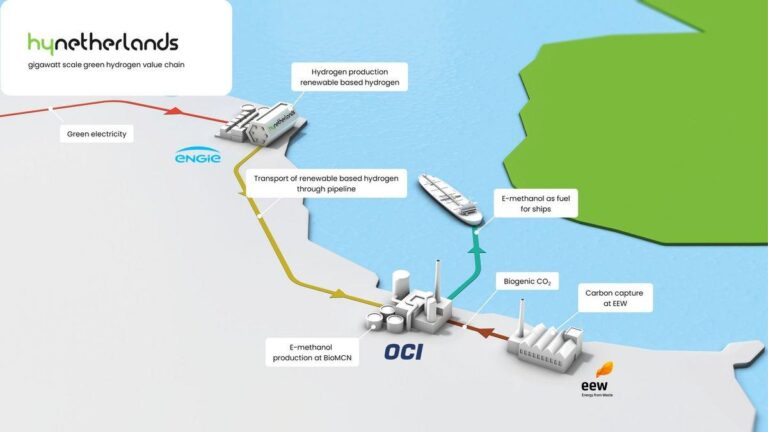The Netherlands and Japan are significantly advancing their cooperation in the hydrogen sector, marking a pivotal step in the global transition towards clean energy. This deepening partnership aims to accelerate the development and deployment of hydrogen technologies, leveraging the strengths of both nations in innovation, sustainability, and offshore energy. As countries worldwide seek to reduce carbon emissions and secure sustainable fuel sources, the collaboration between these two economic powerhouses underscores the growing importance of international alliances in shaping the future of energy.
The Netherlands and Japan Collaborate on Expanding Hydrogen Infrastructure for Sustainable Energy
Recent efforts between the Netherlands and Japan mark a significant milestone in the global push toward cleaner energy solutions. Both nations have committed to joint initiatives aimed at developing a robust hydrogen infrastructure that supports sustainable energy production and usage. This collaboration includes shared research projects, investment in hydrogen transport technologies, and the establishment of pilot plants designed to optimize hydrogen distribution across Europe and Asia. Governments and private sectors from both countries are aligning their policies and resources to accelerate the transition to a low-carbon economy.
Key focus areas in this bilateral partnership include:
- Offshore hydrogen production: Leveraging the North Sea’s wind power potential to generate green hydrogen efficiently.
- Storage and transport solutions: Developing safe and cost-effective pipelines and shipping methods to facilitate hydrogen trade.
- Technological innovation: Collaborating on advanced fuel cell systems and hydrogen-powered mobility projects.
| Project Aspect | Netherlands Contribution | Japan Contribution |
|---|---|---|
| Research & Development | Hydrogen production optimization | Fuel cell technology advancement |
| Infrastructure | Offshore wind-to-hydrogen plants | Hydrogen storage and logistics networks |
| Policy & Funding | EU regulatory frameworks | Government subsidies & incentives |
Joint Research Initiatives Aim to Optimize Offshore Hydrogen Production and Storage Technologies
The collaborative efforts between Dutch and Japanese research institutions have intensified, focusing on refining offshore hydrogen production and storage technologies. This partnership is pioneering innovations aimed at reducing costs and improving efficiency in the generation of green hydrogen from offshore wind resources. By leveraging cutting-edge electrolysis techniques and advanced materials for storage, the joint initiatives seek to address the challenges of scalability and durability in harsh marine environments.
Key objectives of these initiatives include:
- Developing modular offshore electrolysis units capable of integration with existing wind farms.
- Enhancing hydrogen storage solutions to ensure safety and stability under deep-sea conditions.
- Implementing real-time monitoring systems for operational efficiency and predictive maintenance.
| Focus Area | Target Outcome | Expected Timeline |
|---|---|---|
| Electrolysis Efficiency | Increase by 15% | 2025 |
| Storage Durability | Extend lifespan by 20% | 2026 |
| System Integration | Full deployment demo | 2027 |
Policy Recommendations to Accelerate Cross-Border Hydrogen Supply Chain Integration
To effectively fast-track the integration of hydrogen supply chains between the Netherlands and Japan, governments must prioritize the harmonization of regulatory frameworks. Establishing mutual standards for hydrogen quality, safety protocols, and transportation logistics will reduce barriers and build trust across borders. Additionally, fostering public-private partnerships that leverage the strengths of both nations’ energy sectors can accelerate infrastructure development, from offshore production facilities to port terminals designed specifically for hydrogen handling.
Key policy actions include:
- Implementing streamlined customs and certification processes to facilitate seamless cross-border trade of hydrogen.
- Providing targeted subsidies and tax incentives for joint ventures investing in clean hydrogen technologies and supply networks.
- Coordinating research and innovation funding to enable scalable solutions in storage, transport, and conversion technologies aligned with both countries’ climate goals.
| Policy Area | Netherlands Focus | Japan Focus |
|---|---|---|
| Regulatory Alignment | Standardizing hydrogen certification | Safety & transport regulations |
| Financial Support | Offshore infrastructure grants | Renewable hydrogen subsidies |
| Innovation | Electrolysis technology R&D | Fuel cell and storage solutions |
Insights and Conclusions
As The Netherlands and Japan continue to strengthen their partnership in hydrogen energy, their collaboration signals a significant step forward in the global transition toward sustainable fuel sources. With joint efforts focusing on technological innovation and large-scale offshore hydrogen projects, both nations are positioning themselves at the forefront of the emerging hydrogen economy. This deepening alliance not only underscores their commitment to reducing carbon emissions but also highlights the growing importance of international cooperation in achieving a cleaner energy future.




